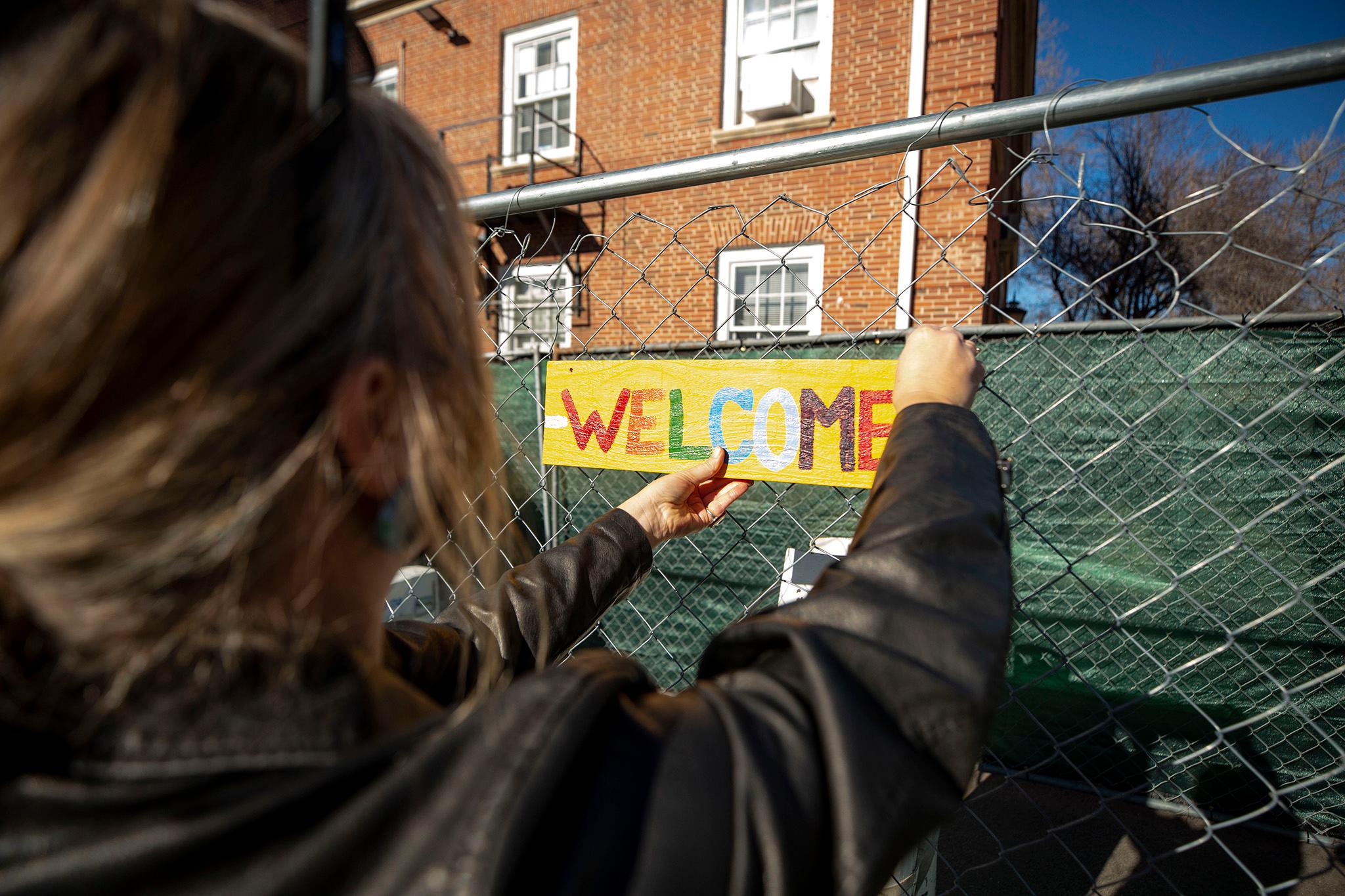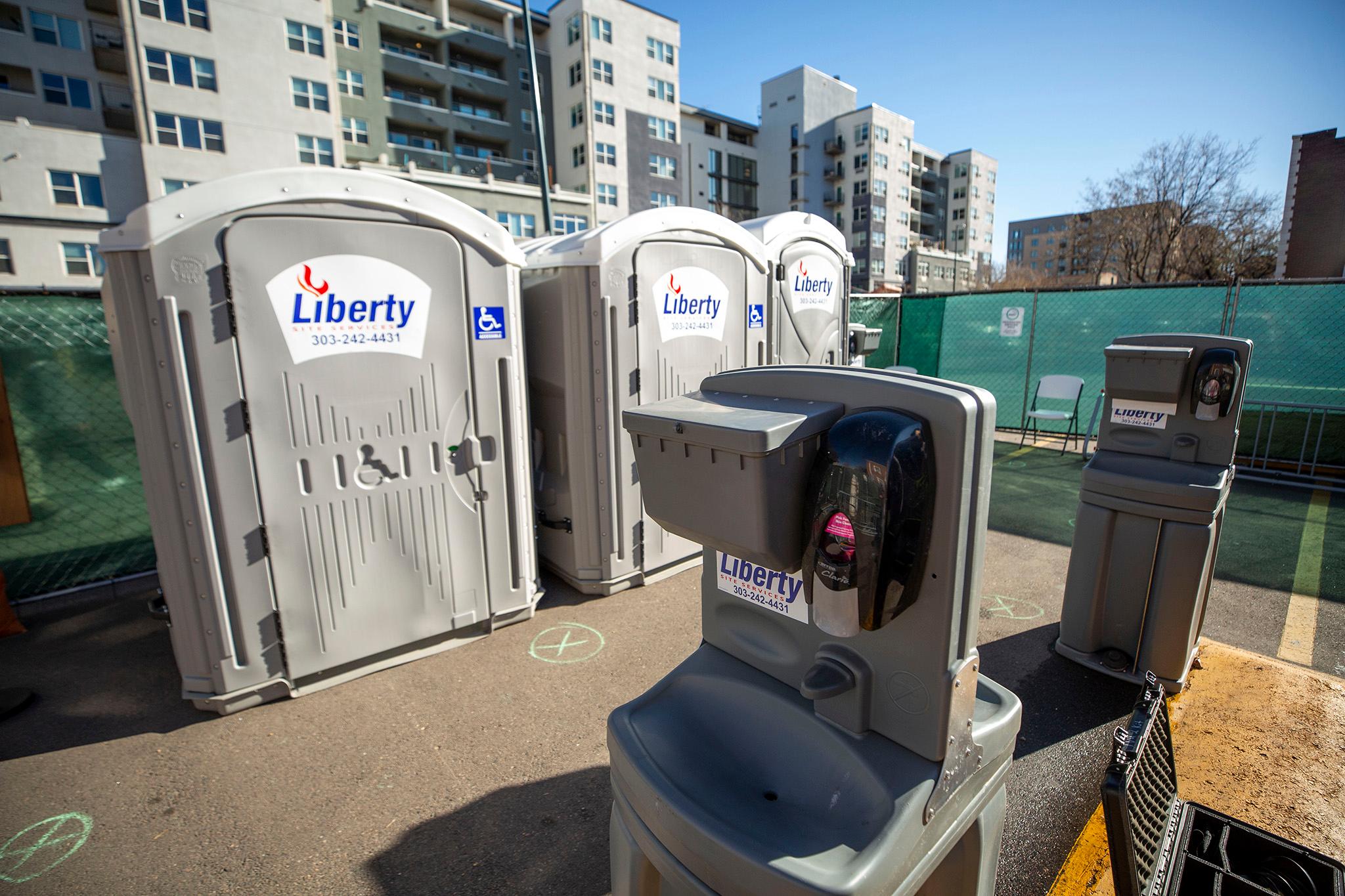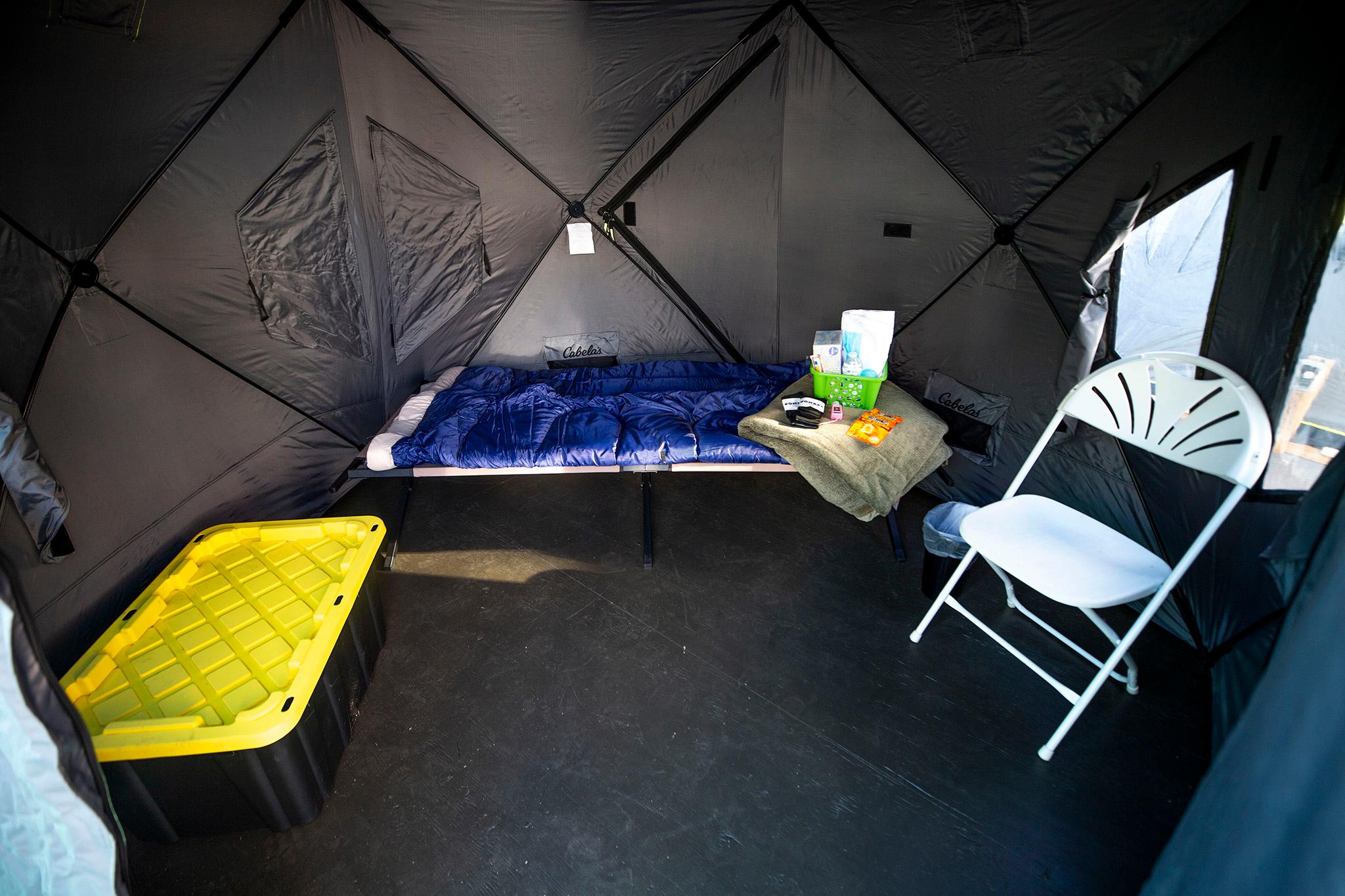City Council voted Monday to make safe outdoor sites a permanent program. The sites, which provide city sanctioned tents and parking spots with support services for people experiencing homelessness, were supposed to end in December of 2023. They were originally created to help shelter people during the pandemic.
Councilmember Robin Kniech, who co-sponsored the bill with Councilmember Chris Hinds, said safe outdoor sites fill a necessary role while the city works to build more permanent homes for people in need.
"We know we have more people experiencing homelessness right now than are able to get into those homes," said Councilmember Robin Kniech on Monday. "That is why we need to have interim solutions."
City Council passed the bill 12-1, with Councilmember Amanda Sawyer the sole no-vote. It now awaits Mayor Michael Hancock's signature.
This means places like The Safe Outdoor Space (SOS) on 13th Ave. in Lincoln Park will continue to help people like Ronnie Hoover, who landed at the site after a few days in jail lost him a room he was renting in a larger house. He spent a few months at Crossroads, a homeless shelter run by the Salvation Army, which Hoover said felt unsafe and crowded.
"It's just a mess," he said. "You get bitten by bedbugs all day."
The site at 13th Ave. is one of three campsites currently in operation in Denver, and one of nine total that have opened since the program began in 2020.
On a quiet Monday afternoon, a handful of residents wandered in and out of the site's common space picking up food left out for residents, while signs advertised community meals and resources aimed at helping people secure long term housing.
Hoover said the city-sanctioned campsite, full of ice-fishing tents and support services for people experiencing homelessness, is a big step up from the communal shelter, helping him get back on his feet. He hopes to ultimately move back in with family while figuring out his next step.
Sites like the one Hoover lives in often serve people who cannot get into other housing assistance programs or shelters for various reasons, such as a lack of accessibility for people with disabilities or living with a pet or partner.

The council bill adds the outdoor sites to Denver's zoning code as part of the city's temporary managed communities alongside tiny home villages and expands where and how they can operate.
The bill expands lease options for the campsites from a few months to up to four years, removes the 30-tent capacity cap in exchange for limits based on location and expands the types of locations for campsites to include vacant lots near major roads.
That removes initial requirements to set up, break down and move campsite locations every few months. Andrew DiCarlo, Senior Program Manager at Colorado Village Collaborate (CVC), the nonprofit that runs the campsite program, called the moving requirements costly.
"A lot of what the people that we work with have dealt with is being swept and bounced around from place to place for weeks, months, oftentimes years," he said. "So knowing that they have a place to call home and don't have to worry about the next move lets you evolve... to some higher level needs."
"(This) just gives us a chance to settle in more," DiCarlo said.
According to city data, the city campsites have sheltered more than 500 people and helped 180 move into long-term housing.
However, since first opening a few years ago, demand for the campsites has outpaced supply. Hinds said spots filled up at the first sites within hours. CVC will soon have capacity for around 200 people, while close to 5,000 people experience homelessness in Denver. DiCarlo said they always have a waitlist. Plus, initial requirements to move locations every few months limits operations.

Hancock, who instituted Denver's controversial urban camping ban, originally opposed the sites. He switched positions in 2020.
"Safe Outdoor Spaces and safe parking sites have provided critical shelter for over 515 people who would've otherwise been sleeping on our streets or in unsafe and unhealthy encampments," he wrote in a statement. "After seeing their success during the pandemic, it's clear these supportive environments should continue and be regulated under the same rules that govern other temporary housing."
City Councilmembers and campsite staff said that by codifying the sites, Denver could lead the way for other cities to attempt the same thing. Other cities, like Missoula, Mont., have tried similar approaches, but the campsites are far from mainstream. CVC staff said officials from across the country have toured the sites in Denver.
Sawyer, the lone no-vote, took issue with funding for the sites, which initially came through federal pandemic funds set to run out. She questioned where future funding would come from. Hinds said the sites are a cheaper option than the current status quo due to the cost of emergency and public safety services used to respond to people living on the streets. The sites also have the buy-in of both candidates for mayor, Kelly Brough and Mike Johnston, one of whom will present Denver's next budget.
Sawyer also said Denver should focus its efforts on permanent housing rather than tents and raised concerns about wealthier neighborhoods' ability to push sites out and into lower-income communities. In 2021, Park Hill residents were unsuccessful in a lawsuit against the city to keep a campsite out.
"This is not housing," she said Monday. "Housing involves a roof and a door, and we are investing heavily in things that are temporary solutions... This is not good enough. We should be doing things differently."
It's a criticism advocates of safe outdoor sites have heard from community members since the program began, and everyone involved with the sites agrees long-term solutions are needed. But, with the number of people living on the streets exceeding shelter capacity, a lingering housing crisis and the time required to build alternatives like motels and transitional housing, advocates for safe outdoor sites say they are necessary.
"As somebody who has been homeless in my lifetime, every option has to be at the table," said Councilmember Jamie Torres before voting yes on Monday. "We can't say 'Only a door and a key and a roof.' That is the ultimate solution, but we also need things along the way that help people get to those things. And I think this has proven to be one of those."

The first sites initially faced pushback, but perceptions changed once the campsites moved into neighborhoods.
Denverite reported in 2021 how previously worried neighbors turned into campsite supporters, and that Denver Police Department (DPD) did not see ongoing crime issues at the sites. A 2022 Colorado Sun article also found that crime did not grow and sometimes decreased in areas with safe outdoor sites.
"The biggest outcry I heard (from neighbors) was 'Why are you taking them away? We want them longer,'" Hinds said. He hosted the first two sites in District 10, which he represents.
Before the vote, Kniech talked about the many years of work, pushback and roadblocks overcome by homeless advocates pushing for the sites to even reach the pilot stage in 2020.
"Fears of the unknown are really tough," she said. "And those fears did not come to pass... The short story is it was piloted during the pandemic, and it proved successful. So, we're adopting it. The full and true story is this is a story of movement building and organizing. It's a story of human change, contending with fears."
Public comment solicited in response to the City Council bill showed similar results, with around 80% of 60 comments in support of the sites. A handful of comments in opposition, including letters from Platt Park People's Association, Winston Downs Community Association and Morgan's Historic District, expressed concerns about sanitation, drug use and safety.
CVC staff said worries like that typically come from people who have not seen the sites firsthand, and that the organization works with community members to build trust while setting up in a neighborhood.
"I invite anyone who's worried, concerned, has questions, we have an open door policy with volunteers, seven days a week, morning or evening," DiCarlo from CVC, said.

CVC staff have no shortage of success stories from people who have come through the sites.
DiCarlo tells the story of one person who lost his toes to frostbite while sleeping outside and was told he might never walk again. But now he walks on his own, lives in an apartment and can afford food. Site Manager Hannah Dew talked about helping one resident get his first ID in ten years, something necessary to apply for assistance programs.
Anecdotally, DiCarlo said he thinks campsite residents are moving more quickly into more stable housing and becoming more self-sufficient once there. CVC tracks outcomes for a year after leaving campsites.
Hoover, at the 13th Ave. site, said tents have been getting hot during the warmer months. He also wishes the site was closer to stores and RTD stops. But overall, he said the sites are run well.
"It's not a bad situation," he said. "I think it's pretty cool."
And DiCarlo said many successes he has seen are not captured by data.
"The things that you're not going to see on any report, or whatever metrics we often use to measure the program, are just personal growth," DiCarlo said. He started working at CVC after 10 years in finance and real estate. DiCarlo had fallen on hard times himself, and after others showed up to assist him, he wanted to return the favor.
"Watching people learn to trust and work with each other again, that's the stuff we'll never be able to quantify," he said.
DiCarlo hopes the sites can grow better roots and serve more people currently experiencing homelessness in the coming years. But he has a different long-term vision.
"My goal would be to put ourselves out of business," he said.













